New Scientist covers the latest developments in science and technology that will impact your world. New Scientist employs and commissions the best writers in their fields from all over the world. Our editorial team provide cutting-edge news, award-winning features and reports, written in concise and clear language that puts discoveries and advances in the context of everyday life today and in the future.
Elsewhere on New Scientist
The cold, hard truth • The race is on to mine the melting Arctic, but chasing riches there is a fool’s errand
New Scientist International Edition
Have your (robotic) cake and eat it
Strongest evidence yet of alien life • On a distant planet, the James Webb Space Telescope has picked up signs of molecules that, on Earth, are produced only by life – but researchers urge caution, finds Alex Wilkins
Ancient device thought to be a type of computer may not have worked
Puppy intelligence tests can predict behaviour as adults
The race to visit near-flying asteroid • An asteroid’s extremely close flyby of Earth offers us the chance to learn more about these space rocks – including how to deflect others like it, finds Robin George Andrews
Smashing asteroids
Digital devices may help ward off cognitive decline in older people
Simple wooden discs could be effective water filters
Ancient humans faced radiation risk • Increased solar radiation in the distant past may have led to the first use of sunscreens
Live colossal squid caught on camera for the first time
Earth’s frozen oceans in meltdown • Extremely low levels of sea ice in the Arctic and the Antarctic may accelerate global warming and disrupt ocean currents, on top of dire consequences for people and wildlife, finds James Dinneen
Sea ice cover in retreat
2025 has seen record-low sea ice levels
Oldest ice cores yet hide climate clues • The hunt for the world’s oldest ice cores could give us a glimpse into our planet’s past and help model future climate change, finds James Woodford
A floating polar research station will uncover the secrets of Arctic winter
The rush to unlock Arctic resources • Thawing ice and permafrost might not be the chance for industrial growth some nations hope for
The rise of Arctic shipping
Burning issue • The TV drama Adolescence is shaking things up in the UK. But where is the equivalent show for climate change, asks Bethan Ackerley
No planet B • Individual action With corporations and governments playing fast and loose with environmental protections, are ordinary people fighting a losing battle to go green, asks Graham Lawton
Lab lens
Ancestral voices • Hunting the origin of many of our modern languages is a huge feat, but a new book makes an excellent and elegant job of it, says Peter Hoskin
Existential Groundhog Day • An unusual speculative novel uses an old trope to new effect, urging us to be truly alert to the world, finds Gerardo Bandera
New Scientist recommends
Nature’s power to transform • From clams to crimson rose butterflies, a poetic account captures the rich wildlife that offsets the urbanity of Chennai, India, says Graeme Green
Your letters
Rethinking Parkinson’s • We have fresh hope of treating the world’s fastest-growing neurological condition – thanks to the surprising discovery that the disease might exist in two types, says Alexandra Thompson
Parkinson’s on the rise
Global estimates of people living with Parkinson’s in millions
Solid, liquid, gas… life? • Redefining life as a strange state of matter might finally help us grasp what it is – and how it started, finds Elise Cutts
Lunar labs • The time is ripe to start building groundbreaking...
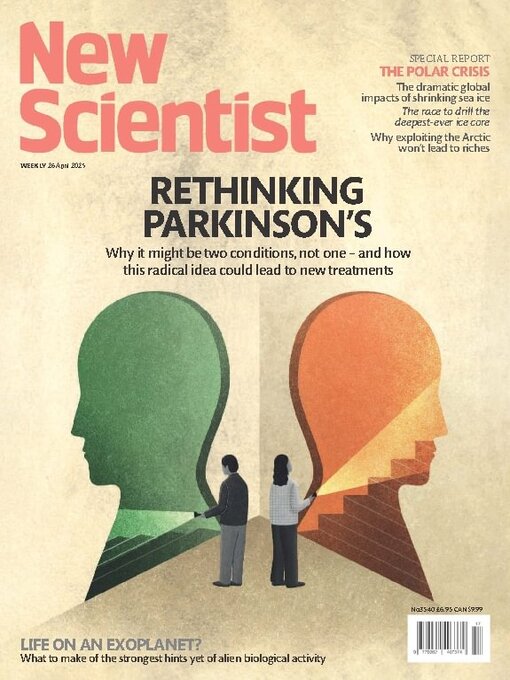
 Jul 12 2025
Jul 12 2025
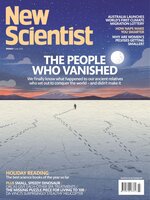 Jul 05 2025
Jul 05 2025
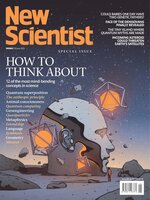 Jun 28 2025
Jun 28 2025
 Jun 21 2025
Jun 21 2025
 Jun 14 2025
Jun 14 2025
 Jun 07 2025
Jun 07 2025
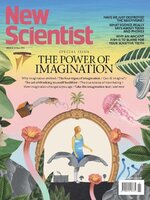 May 31 2025
May 31 2025
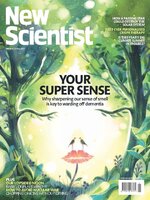 May 24 2025
May 24 2025
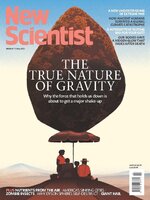 May 17 2025
May 17 2025
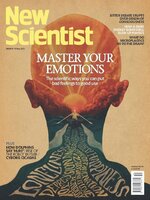 May 10 2025
May 10 2025
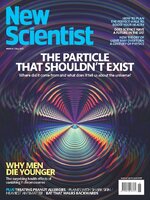 May 03 2025
May 03 2025
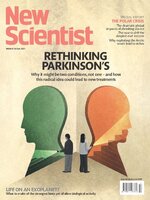 Apr 26 2025
Apr 26 2025
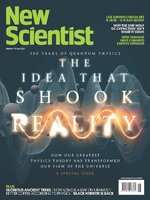 Apr 19 2025
Apr 19 2025
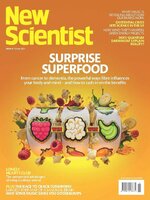 Apr 12 2025
Apr 12 2025
 Apr 05 2025
Apr 05 2025
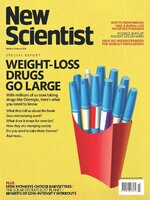 Mar 29 2025
Mar 29 2025
 Mar 22 2025
Mar 22 2025
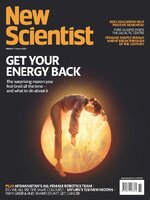 Mar 15 2025
Mar 15 2025
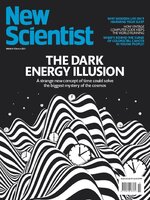 Mar 08 2025
Mar 08 2025
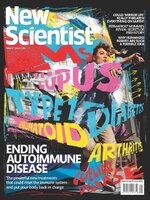 Mar 01 2025
Mar 01 2025
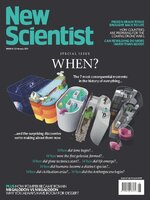 Feb 22 2025
Feb 22 2025
 Feb 15 2025
Feb 15 2025
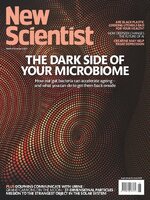 Feb 08 2025
Feb 08 2025
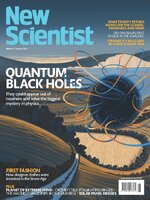 Feb 01 2025
Feb 01 2025